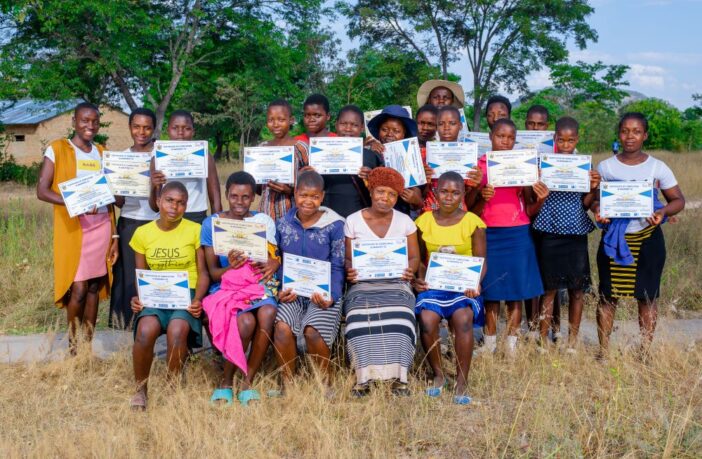The Open University is one of six partners in a successful initiative that has supported the learning of more than 13,400 out-of-school adolescent girls in Zimbabwe.
For the past five years the project has helped the girls, who are disproportionately affected by gender inequality, to improve their learning outcomes and assist their transition into formal education, vocational training or employment.
The Supporting Adolescent Girls’ Education (SAGE) recently published its results highlighting the project’s many successes and recommendations for continuing the learning model in a potential phase-two extension.
The OU has provided technical leadership through its co-design of a two-year accelerated teaching and learning programme in co-ordination with the country’s Ministry of Primary and Secondary Education.
The OU team also designed and implemented an alternative and innovative approach to assess the girls’ learning.
The £13.2 million project was funded by UK aid through the Girls’ Education Challenge (GEC), which was set up in 2012.
Its aim is to reach the world’s most marginalised girls in order to provide them with a quality education so that they can secure a better future for themselves, their families and their communities.
Professor Liz Chamberlain (OU SAGE Academic Director) said:
“For many girls and young women in the world, particularly those in the most fragile states, access to education is underpinned by gender inequality.
“Gender-transformative education, which is at the heart of the SAGE teaching and learning programme, aims to empower stakeholders to challenge and change the harmful gender norms that disadvantage women and girls.
“We are delighted that the endline evaluation has recognised the girls’ many achievements and the knowledge that over 13,400 girls and young women are now moving forward with their lives.”
The programme’s results report:
- More than 75% of the girls and young women improved their literacy and numeracy scores (the target was 65%)
- The average SAGE learner showed three to four grade levels of improvement in their foundational literacy and numeracy skills.
- SAGE has supported 77% of girls and young women to transition onto one of four target pathways: education, vocational/life skills training, fairly paid employment and self-employment. Girls who had never been to school before are now twice as likely to transition into education.
- SAGE introduced inclusive, gender-sensitive, and learner-centred approaches, training community educators to focus on inclusive, learner-centred, gender-responsive instruction, which contributed to learning improvements and girls’ satisfaction with their learning experience.
Research undertaken by the OU in conjunction with consortium partners, will support practitioners, inform policy makers and contribute to the global debates about community-based learning.
It will also promote contextualised, appropriate and alternative pathways that better suit the needs of girls and young women.
You can read the report on the UK aid Girls’ Education Challenge website. All research together with a full set of SAGE’s comprehensive set of resources are freely available here.
SAGE was led by Plan International and involved a consortium of six partners and the Ministry of Primary and Secondary Education, Zimbabwe. Other members of the consortium included CBM Global, AWET and Zimbabwean telecoms company Econet.



